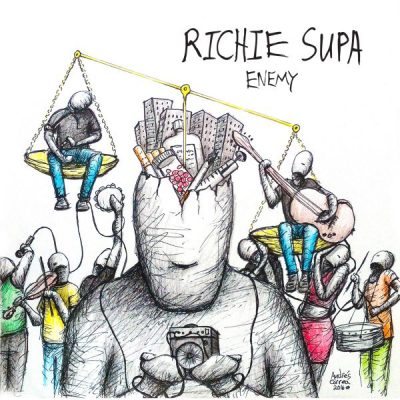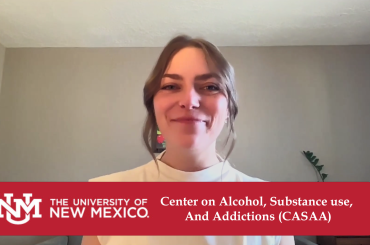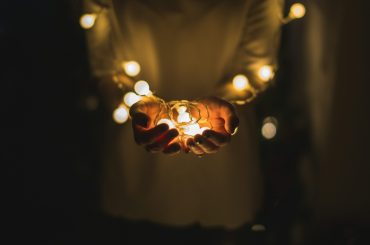I had the privilege of speaking to Rock Legend Richie Supa this week, about his new album “Enemy”, due to be released any day now. Richies music career spans forty years and of the hundreds of songs he’s written, for some of the biggest names in the business, it’s this collection he’s most proud of. Every song on the album is addiction and recovery related. Not only that, but every penny made from the sale of the album goes to the non-profit foundation, “Face The Music”, attached to the “Recovery Unplugged” Rehab facility, where he is Director of Creative Recovery. The funds are allocated to those seeking recovery from addiction who don’t have the financial means to obtain treatment. Supa says, despite his years of success in the music industry, nothing tops his successful twenty seven year recovery from addiction.
Nicola: Hi Richie. It’s great to be able to talk to you today about such an important project. I have it on very good authority from someone who got an advanced copy of the album, that it’s amazing. So how long have you been working on this album – is it a culmination of years of work or all new?
Richie: Hi Nicola. It’s an absolute pleasure to share this exciting news with you. All the songs are brand new, written over the past year – except for two, which are “In The Rooms”, and “Last House On The Block”, both of which won Prism Awards in 2009 and 2011. I’m the Musical Creative Director of all the music therapy at Recovery Unplugged. So while I work with different groups I listen very carefully to all the clients that come to us. And they say things! And as a song writer I always have an antenna out you know? And so the songs were inspired by my experiences working with our clients. Our whole program is music therapy.
Nicola: So it’s not an add on therapy?
Richie: No. The core of our program is the music.
Nicola: Wow, that’s such a great concept. How do the clients react to that? I’m thinking back to my own rehab days – and there’s so much talking that it can be overwhelming and confusing – it must be a hugely uplifting experience for them?
Richie: Right – so basically you are right on point. When clients come in there’s a whole list of problems. They come in broken, full of negative emotions and experiences. The last thing they want is someone wagging their fingers at them and being hit with a whole lot of psychobabble. I walked out of two rehabs myself, because I was that angry broken person and I was so sick – I couldn’t take the talk therapy idea. Our music therapy is so non-threatening. And when you hear the album, it’s pretty self-explanatory. The songs that I wrote are about addiction that’s coming from this addicts heart. I am speaking to them lyrically in a language that they understand. It’s the first album of its kind and totally unfiltered.
I didn’t write this album to get the songs on the radio, or the billboard charts. I wrote this for the millions of addicts around the world. Music is therapy. Music is medicine -if it’s applied right. But this isn’t a new concept. Music has been used in hospitals for decades for pain management, and to treat illness like Alzheimer’s. So we didn’t invent the wheel when we started doing this. But our success rate for addiction recovery is the highest in the state of Florida – I believe – because of our approach.
Nicola: It makes sense that music touches people deeply. If you look at any group or community of people anywhere in the world, down through history, music is a fundamental part of their tradition and spiritual practice and expression right? I always talk about the core of my own addiction being suppressed spirit.
Richie: Well right – I agree. Part of addiction is that we are spiritually sick. It’s in the soul. So music connects directly with the soul. And writing – what you are doing – is also tapping into your soul. A whole powerful dynamic appears when you bring your emotions out through the pen and put it on paper. And so yes it is a spiritual experience.
Nicola: What can be done to prevent addiction in our world do you think. Like I have a 14 year old son who’s just started his first band. The questions about drugs are coming up because he knows my history and what it’s done to me. Yet he’s also got peer pressure and curiosity and questions about how some of the biggest music stars managed to be so creative while using drugs. What could you tell him about the difference between your music during your using days and your music as a recovered person?
Richie: Well music can go two ways. Music has a deep influence on us – it can be good or bad. For me listening to angry music, or rebellious music makes me feel angry and rebellious and I explain to my clients that as part of a lifestyle change we need to change what we feed ourselves – and that includes the music we listen to and the words that we allow into our consciousness. So they need to put away the old angry music they listened to as well as the drugs and alcohol they consumed.
Part of my 40 years as a song writer – I was hired as a staff writer to write hit songs for some of the biggest bands in the world. And I did. I wrote hit songs – the kind that made money. Then in 1993 I wrote the song Amazing with Steven Tyler for Aerosmith and I had gotten into recovery by that time. That was a huge rock power ballad – but it was all about addiction and recovery. And the letters we got after that song was released were phenomenal. People were saying that the song helped them so much. In one letter a guy wrote saying he was about to stick a needle in his arm and Amazing came on the radio and he decided to call someone from his twelve step program instead. It was then that I realized how much power and magic there is in music and the potential it had to reach people in the recovery community. As a recovering addict I was able to reach people in such a positive manner – from the heart, whereas before that, it was all about figures and money. So the seed was planted for what I do now from that first song I wrote about addiction and everything I write now about addiction and recovery is much more valuable.
Nicola: So do your clients leave having a richer appreciation for music as a result of the time spent in your facility?
Richie: Absolutely. So when my clients graduate they take with them an mp3 player with all the music that touched them while they were in rehab – the stuff they listened to that affected them positively, that made them cry, that helped them to express emotion rather than promote negativity in them. It’s hard for me to really explain what happens in our therapy sessions without you experiencing it yourself.
Nicola: I have some idea of what happens – I watched some of the YouTube videos filmed with you and Steven Tyler performing at the Rehab. It must be an incredible experience for these kids who come to rehab and get that kind of performance from such talented and high profile musicians!
So after the success of the song Amazing, what was your next step in writing recovery music?
Richie: So several years later when I met RT and Kenny from InTheRooms.com and they told me what they were doing – I said, let me take a shot at writing a song for you guys. And I did, and so the song on the album” In The Rooms” is written for them. I wrote that song as truthfully as I could – trying to communicate what it was like to walk in the rooms and experience the people that are in there. So it’s that level of lyric that I try to reach people with today.
Nicola: So all the songs on the record are of that intensity?
Richie: Well there’s a mix of everything. There’s some very serious, some funny but they have all been inspired by the effect that that first song “Amazing” had on addicted people. Every day when I interact with clients I see that effect still, how the songs have such a profound effect on these broken people. And it works – you know? Like there’s something really going on here. We are touching them deeply. And that’s why we keep our facility small. It’s not about the money. It’s about the quality of care given to each individual that makes the program so successful. We keep it at thirty five beds.
Nicola: So let me ask you about your own recovery. I often wonder if it’s harder for addicts if they are super successful and have no financial worries, to get clean. For example, my own rock bottom was that I had lost my home, my job, and my kids and I were left with pretty much nothing. I had no choice but to get recovered. So is it harder if you have endless material resources, to get to the point of wanting recovery?
Richie: In my experience it absolutely is. There is a difference between who we are and what we are – and that’s especially true for people like me who was famous, touring with Aerosmith and making lots of money writing songs. I lived in my ego side. Who I was, was a successful rock star. But what I was, was a desperate heroin addict and all the money and the fame lived in the who I was. And the bigger the who you are, the harder it is to get humble and honest. So every time I’d walk into recovery – I’d say – don’t you know who I am? Instead of saying do you know what I am. So the who I am chased me back out the door again and again. My big fat ego. And I didn’t want to hear about God or any of that stuff. So yes the fame and financial stuff is very difficult.
Nicola: So how bad was your bottom to make you want to get clean eventually?
Richie: My bottom was very simple. I was a complete strung out heroin addict. And that’s the simple part. The not so simple part was, I got set up by a fan who used to come to my apartment and who would buy heroin and cocaine from me. So he spun me a story about having a baby that he couldn’t feed and could I get some drugs that he could sell to buy food for his kid, because his own supplier had disappeared. But unbeknownst to me, he’d already been busted by the cops and was wired. And me being the kind hearted fool I am sometimes, wanted to help out his little kid. I set up a deal, and the cops heard everything – broke into my apartment and caught me with a kilo of cocaine. So I ended up doing four years in Sing Sing prison.
Nicola: Wow that is quite a story!
Richie: Yes, and I believe that if that hadn’t happened we would not be having this conversation. There was no way I was going to get clean by myself. I believe that God stepped in and had me locked up.
Nicola: There’s no surer way to have your ego deflated than to be thrown in prison right?
Richie: Oh yeah that did the job alright. There’s nothing like sitting in a jail cell, a big shot musician, hearing your songs playing on the radio that made you lots of money and here you are trying to convince the guys you’re in prison with that you wrote those songs. And these guys are looking at me as if I was all kinds of nuts.
Nicola: I wanted to ask you, as a professional working in the field of addiction recovery, if you find that trauma of some description, is always present in an addicts life? It seems the more I speak to addicts all over the world, the more I’m of the opinion that this is true.
Richie: Yes. Trauma is always present at some level. And part of the attraction for addicts is an addiction to chaos. Addicts thrive on chaos. It takes so much devious behaviour, drama and trauma to keep our habits going that it becomes as big as the substance use. It keeps us hooked on the lifestyle. It’s a huge part of addiction.
Nicola: Right – it is my understanding of myself that I didn’t know how to live my life peacefully because the chaos was always there. And personally from reading and going through a lot of therapy, it appears that we seek out what we know, because it’s comfortable.
Richie: I totally agree. That’s why it’s so hard when we put our substance of choice down – we get antsy. There’s not enough going on. We can’t function without the high intensity life that produces the adrenalin rush. My sponsor told me that now you have a big hole where all that stuff was and you need to fill it with something. Back then I found that exercise helped me so much and I joined a gym. I didn’t know what else to do with myself.
Nicola: Right – and don’t you need to learn balance? I know I did that too and became addicted to the exercise.
Richie: Oh absolutely. I mean we can get addicted to anything. To shopping, shoes, anything when we stop using drugs. But that’s addicts. That’s how we are. I mean I didn’t know I was going to be an addict. I had friends I went out with and got drunk with and they went home at midnight and never became addicted. But I’m the one that would still be up at 2am on the phone looking for more.
Nicola: There’s never just one addiction for an addict is there?
Richie: Not that I’ve seen. There’s always a multitude of behaviors and/or substances. But it gets to a point where you just don’t want to anymore. Like I remember thinking to myself that at ten years clean I’m gonna smoke a joint to celebrate. And when I got to ten years, I was like yeah, I don’t wanna do that now.
Nicola: Right – and I hear that a lot. People have these conditions on their sobriety – like if this happens I’m definitely going to use, or I’m going to reach this milestone and then I’m gonna drink. It’s like we don’t even know how much we are recovering along the way until we remember those thoughts we had and then we realize, wow, I don’t want to hurt myself anymore.
Richie: That’s it. We play these games with ourselves in our heads. It’s still part of the drama we love so much, but it does slip away the longer we stay clean.

Nicola: So when can we expect to be able to add this album to our collections?
Richie: We are working out all the details at the moment regarding release on all streaming services. We are hoping by the first week of April – so next week hopefully. Every cent made from this album goes to our non-profit foundation called “Face The Music”, which is attached to “Recovery Unplugged”, to help people who can’t afford treatment.
Nicola: Awesome. Thanks so much Richie. I cannot wait to get my hands on a copy of the album. It’s been a pleasure.








6 Comments
Wonderful interview! Thank you Richie for your songs of recovery through music!
Cant wait to hear the album.
I read this the other day and I just loved it. I am sorry I didn’t reply sooner! This was fantastic. I loved the give and take – sounds like you guys really understood one another. And it shows in how Richie opened up and shared so richly. Thanks so much for this, Nicky!
Paul
Amazing:
Music is most important to me during my recovery. Ritchie came to a rehab I was in in Florida and he was fantastic. I cant wait to get the album.
Gene
Thank you For this incredible interview! I loved trading this Nicky, and Richie for sharing your life with all of us. Music reaches me and inspires me no matter the need, it always helps me find my truth. Kat
Kat
Richie, your dedication to helping others find their way out of despair is a real testimonial of hope!
I can’t wait to hear your album! Peace and good Health!
I came across this article and it caught my eye when I saw ‘Recovery’ and ‘Music’. . excellent! That fact the the 2 things are put together can be nothing but successful! Thank you so much for sharing . .